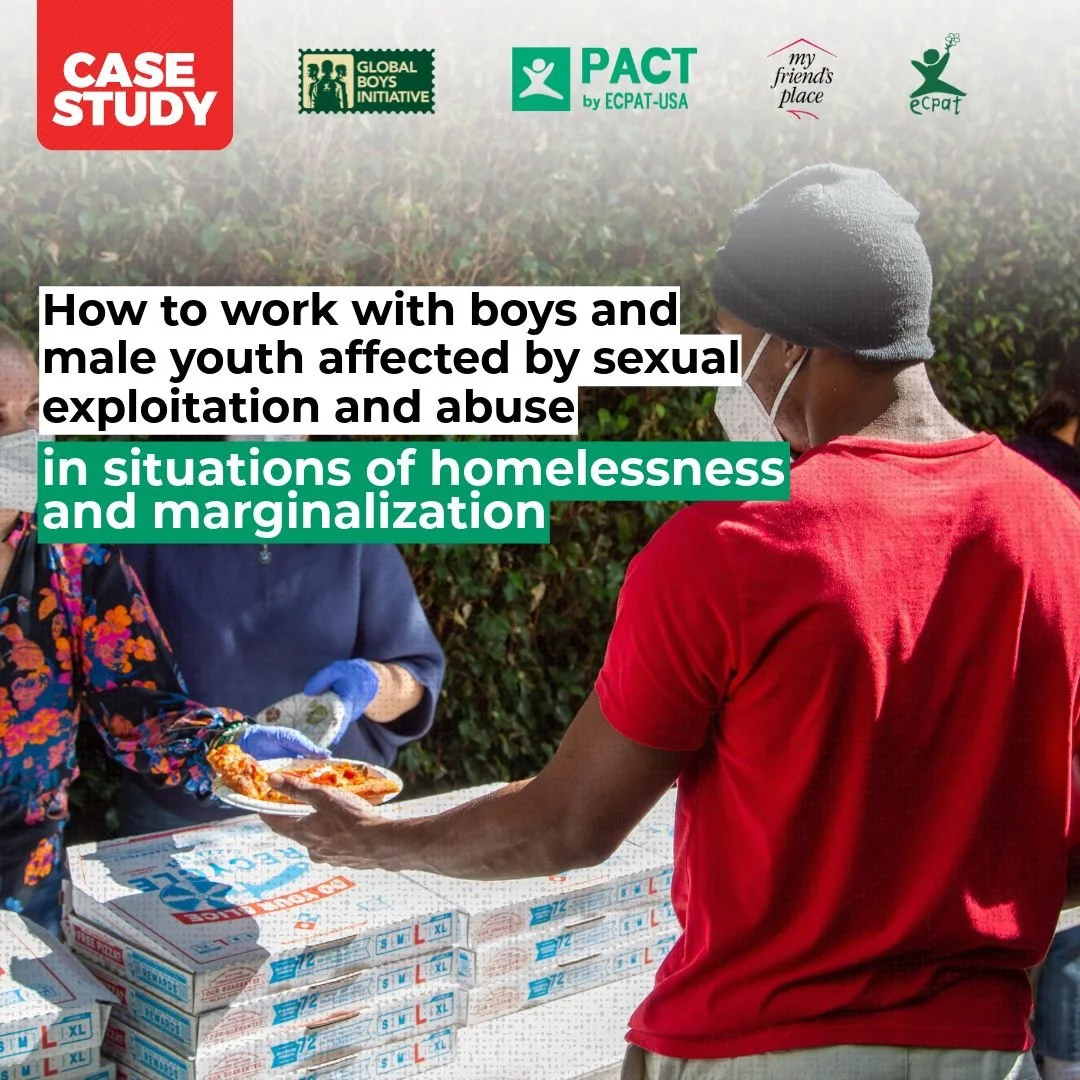Exploring, “Case Study: My Friend’s Place in Los Angeles, USA”
There is continuous research indicating that boys are an underserved population, who often fall through the cracks of child protection systems because of biases against their victimization. Recently, ECPAT International in partnership with My Friend’s Place (MFP) and peer-reviewed by PACT, released, Case study: My Friend’s Place in Los Angeles, USA, which documents MFP’s experience of working with boys between the ages of 12-25 years old who are survivors of exploitation and abuse and are in situations of homelessness or marginalization.
Here are some key takeaways from the case study:
Location is a key factor
Hollywood is widely perceived as a place of opportunity. Because of its location being an epicenter for the entertainment industry, social media sells an image to the boys that they can easily access employment and gain influence and wealth. However, there is also an underworld of commercial male sex, sexual exploitation, and young male escorting, especially in BoysTown in West Hollywood. Boys can be recruited in the streets or through scams that groom boys into sexual exploitation or into situations of transactional sex to have their basic needs covered such as housing, food, or hygiene.
Service providers navigate many challenges while working with boys and should be trauma-informed
The journey of boys is complex, with service providers navigating several challenges at the same time. Services that are tailored to boys must be trauma-informed and low-barrier. MFP has adopted an approach of radical hospitality to create a safe space, where boys can access support and safety without disclosure, fear of discrimination, or the perception that accessing services might put them in greater danger. Because seeking out help can be considered dangerous, as other gang members might know about their situation of survival sex or sexual exploitation, boys must feel safe before being able to speak or seek out support freely.
Criteria for publicly-funded housing often exclude boys who experience housing instability
Because of the high cost of living, boys may get into situations of homelessness and sexual exploitation upon their arrival in Los Angeles, with their lodging commonly being couch surfing, staying in common group houses, or exchanging sexual services for shelter. Criteria for publicly-funded housing follow federal guidelines, which does not include couch surfing and sleeping in hotels, often causing boys who experience housing instability to be excluded. These policies not only undermine the protection of boys, but may discourage them from seeking out help and using formal care and protection systems, and increase their vulnerability to risk and danger.
The case study reveals that stereotypes should be avoided about boys from marginalized communities. When working with boys affected by sexual abuse or exploitation, it’s important to understand the challenges they face such as pressure coming from rigid ideas of masculinity, challenges in seeking out help and disclosure, and be able to navigate ‘uncomfortable’ situations such as violent attitudes or sexual behaviors. Taking this into account, MFP staff are able to serve the boys in a trauma-informed way and respect their experiences and dignity.
Earlier this year, PACT released, And Minnesota Boys, Too, which explores service gaps and opportunities for supporting boys who are survivors of sexual exploitation in Minnesota. ECPAT International, the global network that PACT is part of, has released a series of case studies as part of the Global Boys Initiative, that explores the issues and challenges that arise when working with boy survivors of sexual exploitation and abuse while answering the question, “How can we work with boys at risk and boy survivors of sexual exploitation and abuse with a gender-sensitive approach?”

